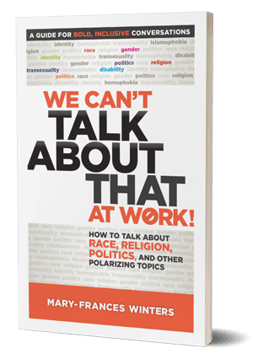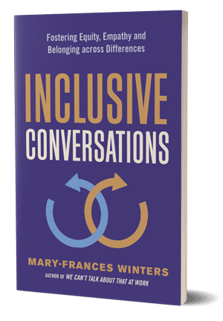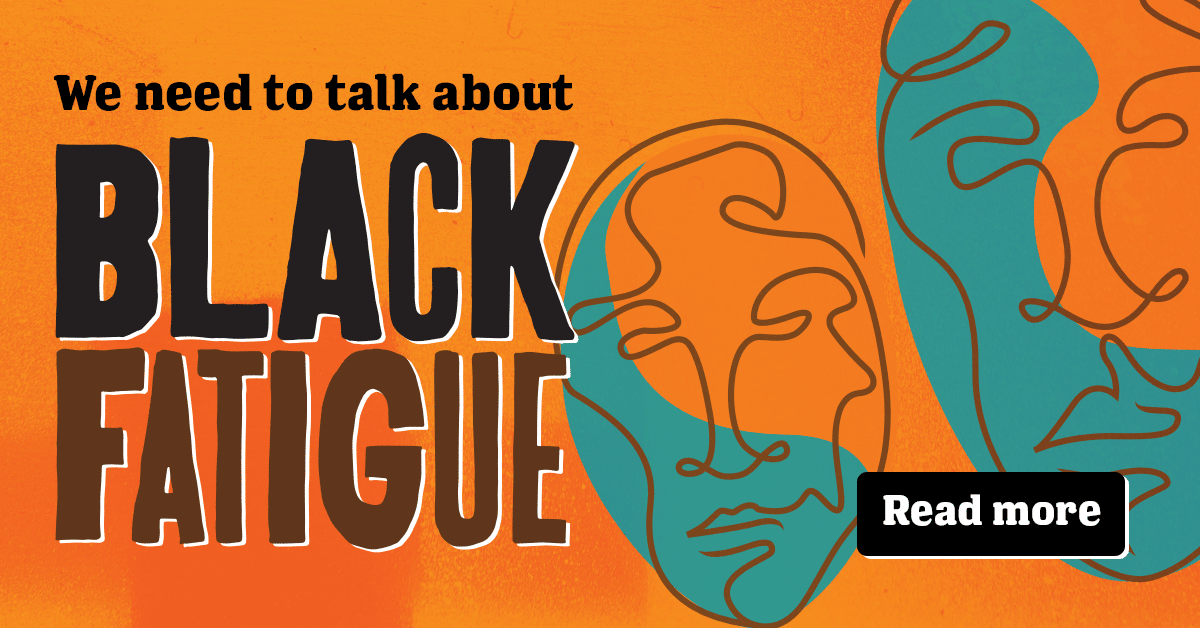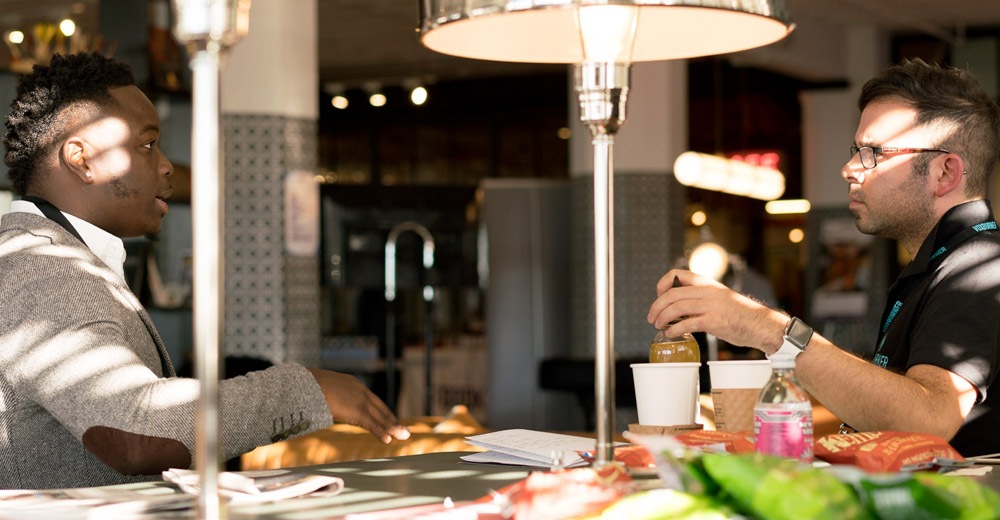I wrote We Can’t Talk About That At Work in 2017, because after three decades as a practitioner in the diversity, equity, and inclusion space, I realized that we had not made much headway in creating inclusive and just work environments. I concluded that the lack of progress was, in part, due to our inability to even engage in conversations about our differences, especially race. I observed that of all of the diversity topics, including gender, age, LGBTQ, disabilities, race, always seemed to be the most difficult to discuss. It is fatiguing for Black, Indigenous people of color (BIPOC) and other marginalized groups to attempt conversations about inequities that we face with little understanding or capability from many in the dominant group to engage authentically.
My three recent books, We Can’t Talk About That At Work: How to Talk About Race, Religion, Politics and Other Polarizing Topics; Inclusive Conversations: Fostering Equity, Empathy and Belonging Across Differences and Black Fatigue: How Racism Erodes the Mind Body and Spirit all tie together for a holistic solution to our seeming inability to dismantle racism and all forms of social injustice.
The Time to Face Inclusive Conversations is Now

This lack of understanding was confirmed during the recent Black Lives Matter Protests, where so many white people admitted that they did know much about the history of racism and its persistence today. The Winters Group was retained by a number of companies to share a historical review of racism and its continued prevalence in all aspects of society.
Many did not know about the vast racial inequities because we do not like to talk about race and racism. We Can’t Talk About That At Work lays out why race and other potentially polarizing topics are so difficult for us to talk about. I provide a model for the prerequisites needed to talk about these topics. Many of us do not have the skills to talk about topics like race, because we have been mostly taught to avoid topics which lead to discomfort.
This widespread claim of discomfort which is a consistent refrain from white people could be mitigated if they focus on the recommendations in the book, such as: 1) self and other understanding, 2) a clear sense of the desired outcome of the conversation (e.g., to win the argument, to understand the other’s perspective; to listen; to have your perspective understood), and 3) an attempt to reach some level of common ground before trying to explore deep-seated differences. We need to do our own work and examine our readiness before attempting bold, inclusive conversations.
Acknowledging Whiteness is a Condition of Inclusive Conversations

The impetus for Inclusive Conversations came from a resounding message from We Can’t Talk About That at Work readers that they wanted more. Inclusive Conversations goes deeper and argues that not only are there prerequisites for engaging in inclusive conversations, but there are also conditions that must be met, including equity, managing power dynamics, metacognitive thinking (thinking about what you are thinking), acknowledging whiteness, among others.
Let me just elaborate on acknowledging whiteness. According to a Pew survey that asks to what extent is your race core to your identity, only 15% of white people answer that it is versus 75% of Black respondents and 59% and 56% of Latino and Asian American respondents, respectively. It is impossible to talk about race when many white people do not see race as a core part of their identity.
Responses like, “I don’t see color” or “we are all apart of the human race, and that is all that matters” is especially fatiguing for BIPOC whose lived experiences clearly invalidate claims to the contrary. Even well-meaning white people shut down any possibility of an inclusive conversation when they are unwilling to acknowledge and understand that whiteness is the crux of the race issue.
The Emotional Labor on Black People to Lead Inclusive Conversations is Fatiguing
![[L]-black-fatigue-my-mary-frances-winters](https://ideas.bkconnection.com/hs-fs/hubfs/download/ebooks/%5BL%5D-black-fatigue-my-mary-frances-winters.png?width=227&name=%5BL%5D-black-fatigue-my-mary-frances-winters.png) Black Fatigue provides an in-depth account of why Black people are fatigued and what we can do about it. We are fatigued because white people claim sublime ignorance about racial inequities, use “discomfort” as an excuse for not engaging in conversations, and therefore fail to address the centuries-old structural racism caused by white supremacy ideology.
Black Fatigue provides an in-depth account of why Black people are fatigued and what we can do about it. We are fatigued because white people claim sublime ignorance about racial inequities, use “discomfort” as an excuse for not engaging in conversations, and therefore fail to address the centuries-old structural racism caused by white supremacy ideology.
White people who read Black Fatigue will not only be educated on the history of racism but may also be motivated to become an anti-racist, an ally, and a power broker for systemic change. It will provide a necessary context to engage in inclusive conversations. For Black people, it will also be educational and affirming, and when one of your white colleagues asks you to educate them, you can refer them to this resource so as not to exacerbate your fatigue.
If we want to dismantle racism, we have to know how to have conversations about it. If you want to understand the burden of carrying conversations about race on Black people, read Black Fatigue first. If you are BIPOC, you might want to gift Black Fatigue to your white associates to lessen the emotional labor on you. We Can’t Talk About that at Work is a good starting point for learning to have conversations about “uncomfortable” topics. Inclusive Conversations takes you deeper into strategies for achieving equity, empathy, and belonging in cross-racial discussions.



